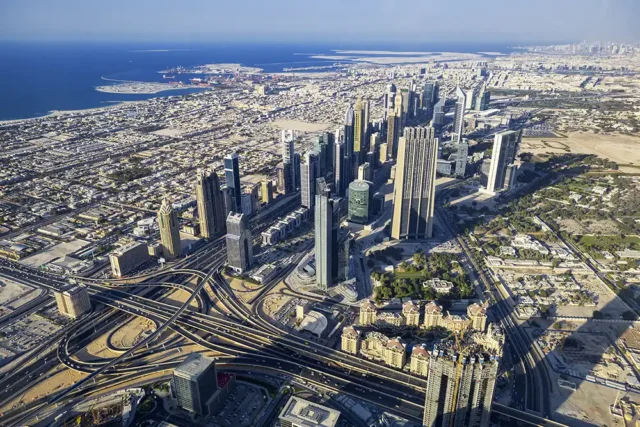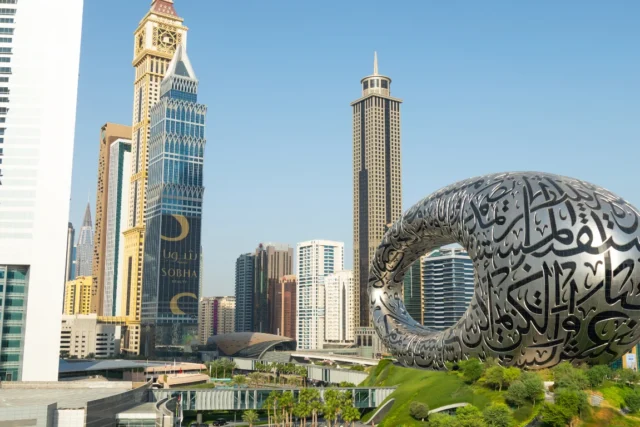
Introduction
Dubai, a city known for its luxurious lifestyle, stunning architecture, and dynamic economy, offers a vibrant real estate market with numerous options for both renting and buying properties. Deciding whether to rent or buy in Dubai can be a challenging decision, influenced by various factors including financial considerations, lifestyle preferences, and long-term goals. This article aims to provide a comprehensive comparison between renting and buying in Dubai, helping you make an informed decision that best suits your needs.
Understanding the Dubai Real Estate Market
- Market Overview
Dubai’s real estate market is diverse and dynamic, characterized by a wide range of property types from high-rise apartments to luxurious villas. The market is influenced by factors such as economic stability, government policies, and population growth, which impact both rental and sales prices.
- Government Initiatives
The UAE government has implemented several initiatives to boost the real estate sector, including the Dubai 2040 Urban Master Plan and various incentives for foreign investors. These initiatives aim to enhance the city’s infrastructure, livability, and attractiveness as a global real estate hub.
Renting in Dubai
- Flexibility and Convenience
One of the primary advantages of renting in Dubai is the flexibility it offers. Renting allows you to move without the long-term commitment associated with property ownership. This is particularly beneficial for expatriates and individuals who may have job transfers or plan to stay in Dubai for a limited period.
- Lower Upfront Costs
Renting typically requires lower upfront costs compared to buying a property. Tenants are usually required to pay a security deposit and rent for a few months in advance, but this is significantly less than the down payment and other expenses associated with purchasing a property.
- Maintenance and Repairs
In most rental agreements, the landlord is responsible for maintenance and repair costs. This can be a significant advantage for renters, as they do not have to worry about the additional expenses and hassles related to property upkeep.
- Access to Prime Locations
Renting can provide access to prime locations in Dubai that might be financially out of reach for buying. High-end areas such as Downtown Dubai, Palm Jumeirah, and Dubai Marina offer luxurious rental properties with stunning views and top-notch amenities.
Buying in Dubai
- Investment Potential
Buying property in Dubai can be a lucrative investment, given the city’s economic growth and rising property values. Real estate in Dubai has historically shown strong appreciation, making it an attractive option for investors looking for long-term gains.
- Building Equity
When you buy a property, your mortgage payments contribute to building equity over time. This means that instead of paying rent to a landlord, you are investing in an asset that could appreciate in value, providing financial security and potential profit when you decide to sell.
- Stability and Security
Owning a property offers stability and security, particularly for those planning to stay in Dubai for an extended period. Property ownership eliminates the uncertainties associated with renting, such as lease terminations and rent increases.
- Customization and Personalization
Homeowners have the freedom to customize and renovate their properties according to their preferences. This level of personalization is often restricted in rental properties, making ownership more appealing for those who want to create their ideal living space.
Financial Considerations
- Cost Comparison
-
- Renting : The main costs include monthly rent, security deposit, and utility bills. Renters also need to budget for potential rent increases over time.
- Buying : The initial costs are higher, including the down payment (usually 20-25% of the property price), mortgage fees, property registration fees, and ongoing maintenance costs. However, mortgage payments contribute to building equity.
- Long-Term Financial Impact
While renting may be cheaper in the short term, buying a property can be more cost-effective in the long run. Property ownership can provide financial benefits through equity buildup and potential appreciation in property value. Renting, on the other hand, does not offer any return on the money spent on rent.
Lifestyle Considerations
- Duration of Stay
- Short-Term Stay : Renting is generally more suitable for those planning to stay in Dubai for a short period (e.g., 1-3 years). It offers flexibility and lower upfront costs.
- Long-Term Stay : Buying may be more advantageous for those intending to live in Dubai for an extended period. It provides stability, potential financial benefits, and the freedom to personalize the living space.
Lifestyle Preferences
-
- Renting : Ideal for individuals who prioritize flexibility and convenience. Renting allows for easier relocation and less responsibility for property maintenance.
- Buying : Suitable for those who value stability, long-term financial security, and the ability to customize their home. Ownership can also offer a sense of pride and accomplishment.
Legal and Regulatory Aspects
- Rental Regulations
Dubai’s rental market is regulated by the Dubai Land Department (DLD) and the Real Estate Regulatory Authority (RERA). These organizations ensure transparency and fairness in rental agreements, providing legal protection for both tenants and landlords.
- Property Ownership for Expats
Foreign nationals are allowed to buy property in designated freehold areas in Dubai. The process involves obtaining a no-objection certificate (NOC) from the developer, registering the property with the DLD, and paying the necessary fees. The government has also introduced long-term visas for property investors, further enhancing the attractiveness of property ownership for expatriates.
Market Trends and Future Predictions
- Renting Trends
The rental market in Dubai has shown resilience, with steady demand from expatriates and short-term residents. As Dubai continues to grow as a global business and tourism hub, the demand for rental properties is expected to remain strong.
- Buying Trends
The property market in Dubai is poised for growth, driven by economic diversification, government initiatives, and infrastructural developments. The introduction of new visa regulations and incentives for foreign investors is likely to attract more buyers, leading to increased demand and property value appreciation.
Conclusion: Making the Right Choice
Deciding whether to rent or buy in Dubai ultimately depends on your personal circumstances, financial situation, and long-term goals. Both options have their advantages and considerations:=
-
- Renting : Offers flexibility, lower upfront costs, and convenience, making it ideal for short-term residents and those who value mobility.
- Buying : Provides long-term financial benefits, stability, and the opportunity to build equity, making it a sound choice for long-term residents and investors.
Consider your duration of stay, financial capacity, lifestyle preferences, and market trends when making your decision. Consulting with real estate professionals and financial advisors can also provide valuable insights tailored to your specific needs.
Whether you choose to rent or buy, Dubai’s vibrant real estate market offers a plethora of options to suit diverse preferences and budgets. Embrace the opportunity to live in one of the world’s most dynamic cities and enjoy the unique lifestyle that Dubai has to offer.




